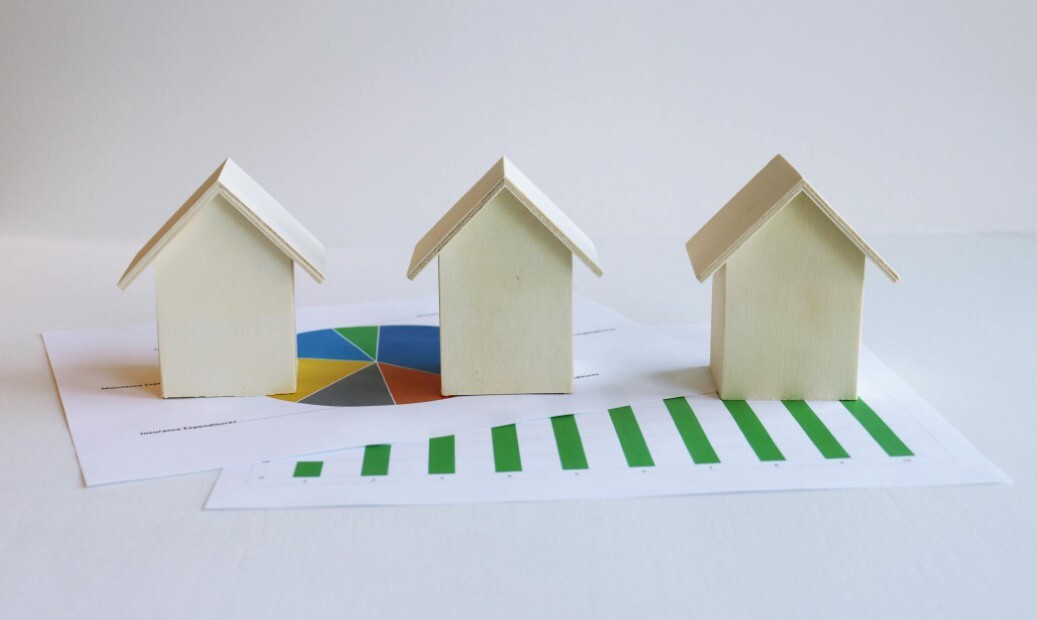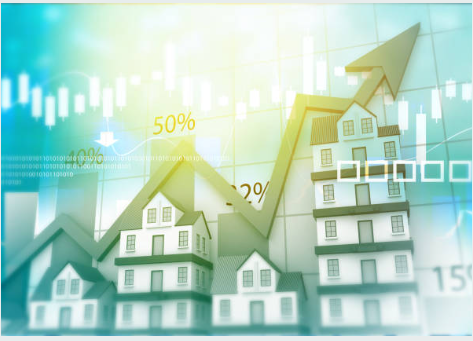2026 Housing Market Predictions: What’s Coming for Real Estate?
After a year marked by fewer home sales, stagnant home prices, and mortgage rate drops, many are speculating about what might happen to the housing...
5 min read
Rent To Retirement : Feb 16, 2024 1:43:00 PM
If you're thinking of adding a property to your investment portfolio in 2024, you may be wondering how the election will impact the U.S. real estate market. While many believe that an election year brings about uncertainty among investors, the truth is that this period can be an exciting time to invest. By analyzing trends and data from previous elections, it becomes possible to accurately give a housing market prediction for the next one.
During the 21st century, home sales prices have increased consistently for all but one election, which indicates that the uncertainty doesn't spread to the real estate market. At the beginning of 2000, the average price for a single-family home in the U.S. was $202,900. By the end of the year, the average sales price had increased to $212,100.
The only election year that saw a decrease in the sales price was 2008, which was the result of the Great Recession being in full swing. Aside from 2008, sales prices rose in every other election year. For example, the average price at the beginning of 2004 was $262,900. By the end of the year, the average price had increased to $286,300. In 2012, sales prices increased from $278,000 to just under $298,000. During the 2020 election season, prices grew from $383,000 in the first quarter to $403,900 in the fourth.
We can also look at how the median rent aspect of the consumer price index (CPI) changed in election years. This index shows the median rent of a primary residence. It roughly correlates with the actual rent increases or decreases that take place each year.
In 1995, the rent CPI was at 159.60. During the election year, it rose to 164, which is an increase of 4.40. The following year increased by 5.10. For the next two elections, single-digit increases occurred during the election year. The biggest changes took place in 2016, which is when the rent CPI rose from 291.20 to 302.74.
When looking specifically at interest rates, they tend to drop slightly during an election year. In 1996, rates increased from 7.11% to 7.64%. However, they dropped to just below 7% the following year.
In the four elections that took place between 2000-2012, rates dropped each year. For example, rates decreased from 8.06% to 7.13% in 2000, which is a drop of almost an entire percentage point. In 2008 and 2020, interest rates declined by more than 1%. While interest rates rose by 0.31% in 2016, they dropped by nearly the same amount in the following year.
Housing supply can also change during an election year. When supply is low, prices tend to increase, which is great news for real estate investors. In 1999, the market had 4.3 months of supply. By the end of 2000, supply dropped to a rate of 3.6 months. Housing supply remained consistent in the 2004 election year. While it rose sharply in the 2008 election year, supply flooded the market because of the financial crisis.
From 2011-2012, supply dropped from 5.3 to 4.5 months. During the 2016 election year, it increased slightly from 5.1 to 5.4 months. As for 2020, this election year marked the largest drop in housing supply. At the beginning of the year, 5.6 months of supply were available. This rate dropped to 4.1 by the end of the year.
When considering the sales volume, it has increased in most elections. While sales plummeted in 2008, they rose from 4.26 to 4.66 million in the 2012 election year. In 2016, 5.45 million homes were sold, which marked an increase of .20 from the previous year. A similar increase was seen in 2020.
These trends show that elections don't hurt the real estate market. What's more, they appear to have a positive impact. Sales prices have increased significantly in nearly every election over the past 24 years, which means that buyer demand was high while supply was relatively limited. Rent often increases as well during an election year. The coming months will give us more insight into if these trends will continue in 2024.
There's always some economic and political uncertainty during an election year. While sellers and buyers can choose to take a more hesitant approach to the real estate market, this is rarely the case. There are several factors that play a role in the state of the market while an election year is ongoing.
Among the most important factors is economic growth. If the broader economy is strong, this is a good sign for the housing market. Buyers who are less worried about what will happen to their money are more likely to make offers on homes. While you may need to spend more to acquire a property for your portfolio, its value should continue to increase once you make the purchase.
Interest rates also impact the state of the housing market. When interest rates are high, people must spend more to borrow money from a bank or credit union. Let's say that you're looking to buy a single-family home worth $400,000. If you expect to make an $80,000 down payment, the size of the loan would be around $320,000.
You could then obtain a 30-year mortgage that allows you to repay the entire loan over a lengthy period. If the loan has a 5% interest rate, the total amount you'll pay by the end of the 30-year loan is around $618,000. On the other hand, a 7% interest rate means that you'll eventually pay $766,000. If interest rates are increasing, there may be less demand because of the higher costs.
Even though political uncertainty exists, most buyers and investors focus primarily on what their money is worth. If interest rates decline during an election year, buyers are much more likely to enter the market and purchase properties.
The winner of the election doesn't play a significant role in the real estate market. Since they don't take office until the following year, their policies don't have an immediate effect on home values.
Before you think about the rest of the year, consider the current health of the market. For the past two years, interest rates have been increasing consistently. The reason why interest rates have risen is because the Federal Reserve has been hiking the fed funds rate. When this happens, banks and other financial institutions feel compelled to do the same with interest rates.
Today, however, interest rates are dropping in many places. While the Federal Reserve has yet to make significant cuts to the fed funds rate, they've indicated that they will do so in 2024. The real estate market has responded well to this news.
In October 2023, home prices increased by 4.7% compared to the same month in 2022. When interest rates were at their highest earlier in 2022, home values were either dropping or remaining flat.
When interest rates drop or are expected to decline, buyers know that they can afford better homes. In this scenario, prospective buyers respond by entering the market and making offers. When there are enough buyers in the market, home values are driven up by competition and bidding wars. Since more homes are being bought, there's less inventory available for other buyers. Prices will continue to increase if demand outpaces supply.
Recent trends give a clear indication that 2024 will be a strong and exciting year for the real estate market. Interest rates are expected to dip to 6.1% by the end of the year, which would be a drop of nearly 1% since the beginning of January.
While several other factors determine how healthy the real estate market will be during an election year, the most important one involves interest rates. Keep in mind that the economy is also doing very well at the moment. Gas prices have begun to decline in many locations, which is another reason why people are more likely to spend money on properties.
The unemployment rate is low as well, which means that more people can afford to buy homes. Inflation isn't as much of a concern as it was over the past two years. The current trends point towards the real estate market growing in 2024.
Since the Federal Reserve hasn't backtracked from indicating that they'll lower interest rates, you have every reason to believe that 2024 will be a good time to invest. If you're in the market to offload an investment property, this year should also be a great time to sell.
If you'd like to keep track of the numerous factors that impact the U.S. housing market, pay attention to interest rate trends, the current supply of homes, and unemployment rates. When the housing supply is low and demand is high, home values increase. Since these factors are all currently positive, you should be confident in your decision to invest. Call Rent to Retirement today if you're searching for an investment property and need some help.
With a solid grasp of the complexities involved in purchasing investment property and a well-rounded strategy in hand, prospective real estate investors can proceed with assurance and insight as they embark on their journey into real estate investment in 2024 and beyond. To explore further insights into the world of real estate investing, learn more from Rent To Retirement today!

After a year marked by fewer home sales, stagnant home prices, and mortgage rate drops, many are speculating about what might happen to the housing...
Once you decide to build a real estate investment portfolio, you'll then need to find properties to invest in. While you can use the tried-and-true...

It’s been a difficult few years for real estate investors. Is now a good time to invest in real estate, or should you wait it out for another 12...